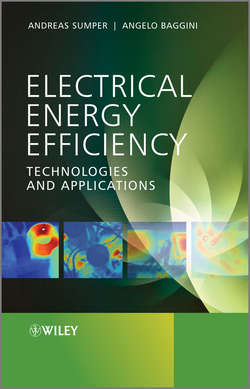Описание книги
The improvement of electrical energy efficiency is fast becoming one of the most essential areas of sustainability development, backed by political initiatives to control and reduce energy demand. Now a major topic in industry and the electrical engineering research community, engineers have started to focus on analysis, diagnosis and possible solutions. Owing to the complexity and cross-disciplinary nature of electrical energy efficiency issues, the optimal solution is often multi-faceted with a critical solutions evaluation component to ensure cost effectiveness. This single-source reference brings a practical focus to the subject of electrical energy efficiency, providing detailed theory and practical applications to enable engineers to find solutions for electroefficiency problems. It presents power supplier as well as electricity user perspectives and promotes routine implementation of good engineering practice. Key features include: a comprehensive overview of the different technologies involved in electroefficiency, outlining monitoring and control concepts and practical design techniques used in industrial applications; description of the current standards of electrical motors, with illustrative case studies showing how to achieve better design; up-to-date information on standarization, technologies, economic realities and energy efficiency indicators (the main types and international results); coverage on the quality and efficiency of distribution systems (the impact on distribution systems and loads, and the calculation of power losses in distribution lines and in power transformers). With invaluable practical advice, this book is suited to practicing electrical engineers, design engineers, installation designers, M&E designers, and economic engineers. It equips maintenance and energy managers, planners, and infrastructure managers with the necessary knowledge to properly evaluate the wealth of electrical energy efficiency solutions for large investments. This reference also provides interesting reading material for energy researchers, policy makers, consultants, postgraduate engineering students and final year undergraduate engineering students.
